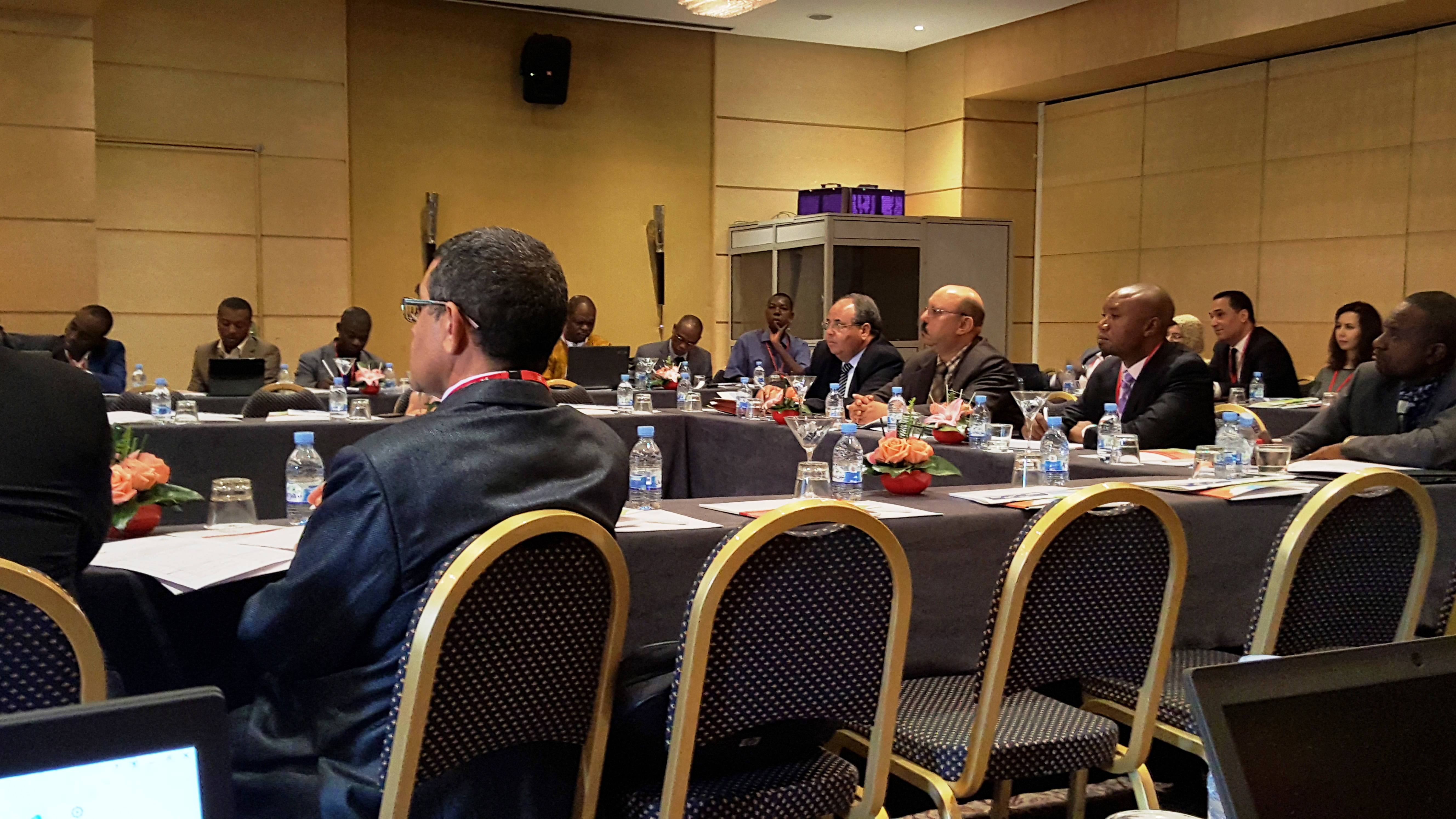Adaptation Fund Workshop in Ethiopia Aimed at Increasing Climate Finance Access for Least Developed Countries
Washington, D.C. (May 30, 2017) — As part of ongoing outreach activities through its Readiness Programme aimed at increasing access to climate finance for vulnerable countries, the Adaptation Fund convenes more than 35 Least Developed Countries (LDCs) at a Climate Finance Readiness Workshop for LDCs in Ethiopia this week.
The workshop is being held May 30 – June 1 in Addis Ababa and is co-hosted with Ethiopia’s Ministry of Finance and Economic Cooperation (MOFEC), the Adaptation Fund’s accredited National Implementing Entity (NIE) for Ethiopia. Speakers from LDCs will share country experiences in accessing adaptation finance and achieving adaptation goals outlined in National Adaptation Plans and Nationally Determined Contributions, while Fund staff provide guidance on direct access to adaptation finance, and best practices for NIEs on the Fund’s accreditation and project development processes. The Fund will also offer countries individualized climate finance clinics.
Dominated by agricultural and livestock sectors composed largely of small-scale subsistence farmers who practice traditional farming methods, Ethiopia, which is also an LDC, is especially vulnerable to climate change, rainfall variability, major droughts, floods and land degradation that put the population at risk to food and water shortages. The workshop is particularly timely in that the Adaptation Fund Board approved a new US $9.9 million project in March that will be implemented by MOFEC to increase Ethiopia’s capacity to manage droughts through improved adaptation planning, sustainable land management, climate smart agriculture and enhanced access to potable water and small-scale irrigation.
Furthermore, of the Adaptation Fund’s 25 NIEs around the globe, 40% are in LDCs and Small Island Developing States (SIDS). Of its US$ 418 million committed to 67 countries to date, the Fund is supporting 26 LDCs and 15 SIDS.
“We are pleased to co-host this important workshop with our Ethiopian partners,” said Adaptation Fund Board Chair Michael Kracht. “It provides an excellent platform for many LDCs to exchange successes and lessons learned on achieving accreditation and developing effective adaptation projects, with the end goals of strengthening country knowledge and capacity to empower the development of more adaptation actions in countries that need it the most.”
Highlighting the Fund’s pioneering Direct Access modality, in which developing countries can access climate finance and develop concrete, localized projects directly through NIEs, the workshop will include speakers from MOFEC and NIEs in Rwanda and Senegal that will speak about Fund projects. Representatives from countries such as Burundi, Nepal, Bhutan, Tuvalu and Zambia will also speak, as will speakers from UNDP (an accredited multilateral implementing entity of the Fund). The Climate Technology Centre and Network, which through a partnership with the Adaptation Fund provides additional readiness support for project design, will speak about other sources of readiness support for adaptation.
“The Fund’s Readiness Programme has grown tremendously since it was established in 2014 to provide support to developing countries through workshops, webinars, south-south cooperation and small technical assistance grants that help NIEs through needed steps to achieve accreditation and develop effective adaptation projects,” said Mikko Ollikainen, Manager of the Adaptation Fund. “We hope this workshop results in increased knowledge and leads to additional National Implementing Entities becoming accredited with the Fund to help more LDCs develop urgently needed climate change adaptation solutions in vulnerable communities.”
Among other key topics will be the Fund’s valued role in the global climate finance landscape in providing concrete, effective and scalable adaptation projects to the most vulnerable communities, and an introduction to its innovative Environmental, Social and Gender policies — which promote human rights, marginalized groups, gender equity and biological diversity in projects. Its Environmental and Social Policy was recently praised by the UN Special Rapporteur as a possible model for a new human rights mechanism called for in the landmark Paris Agreement. The Fund further adopted an alternative, streamlined accreditation process for smaller entities in 2015 that has opened doors for vulnerable countries and states that may not be able to access climate finance otherwise.
ABOUT the ADAPTATION FUND
Since 2010, the Adaptation Fund has committed US $418 million to support 67 countries, with more than 5.3 million direct beneficiaries.
Communications: Matthew Pueschel, mpueschel@adaptation-fund.org or +1-202-473-6743
Attachments
| Attachment | Type | Size |
|---|---|---|
| Press release May 30, 2017 | 243 KB |



